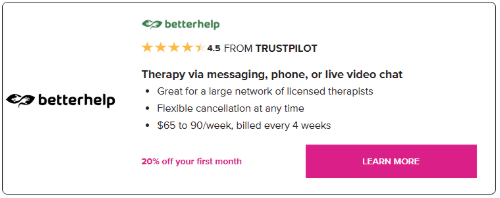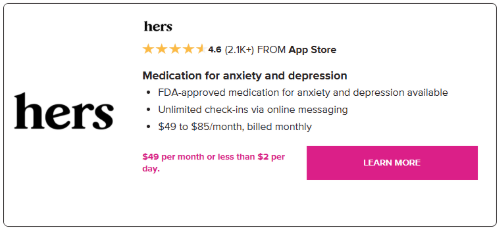Your tropical getaway in a glass! Dreaming of...
Read More

Let’s be honest – most health advice seems written for people with unlimited time and zero responsibilities. “Just meal prep for five hours every Sunday!” “Wake up at 5 AM for your two-hour morning routine!” Meanwhile, you’re juggling deadlines, maybe raising kids, and just trying to keep your head above water. The last thing you need is another unrealistic health regimen that sets you up to fail.
I’ve spent years working with busy professionals to develop healthy work life habits that stick – not because they’re perfect, but because they’re actually doable. These aren’t aspirational Instagram habits; they’re practical strategies for real people with real constraints on their time and energy.
The boundary between work and personal life has never been blurrier. With remote work, smartphones, and always-on expectations, many of us are working longer hours while feeling less productive and more burned out. Developing healthy work life habits isn’t just about looking better or living longer – it’s about functioning better right now.
Sustainable healthy work life habits can:
The key is finding the minimum effective dose – the smallest changes that deliver the biggest impact on your wellbeing, rather than trying to overhaul your entire lifestyle overnight.
💡PARENT TIP Even 30 minutes of screen-free play daily can make a noticeable difference in your child’s behavior and sleep quality. Start small and build from there!

Most hydration advice boils down to “drink more water” – not helpful if you’re already struggling to remember. Instead, try these practical healthy work life habits around hydration:
The Morning Water Trigger Place a full water bottle on your bathroom counter each night. Drink it first thing while checking email or brushing teeth – before your first coffee. This front-loads hydration before the day gets away from you.
The Meeting Hydration Hack Keep a water bottle visible during video calls. Take a sip every time someone says certain common work phrases like “circle back” or “touch base.” You’ll be amazed how quickly these healthy work life habits build up your water intake.
Technology-Assisted Hydration Smart water bottles that light up to remind you to drink might seem gimmicky, but for busy professionals, they remove the mental load of remembering. Sometimes the best healthy work life habits are the ones you can outsource to technology.
The cognitive benefits of proper hydration hit within 20 minutes – sharper thinking, better mood, and reduced fatigue make this one of the highest-ROI healthy work life habits you can adopt.
Forget hour-long gym sessions that never happen. “Movement snacking” – short bursts of physical activity throughout the day – might actually deliver better health benefits for busy professionals.
The 11/22/33 Method Set three alarms: 11am, 2pm, and 3:30pm. At 11am, do 1 minute of movement (simple stretching or marching in place). At 2pm, do 2 minutes. At 3:30pm, do 3 minutes. These micro-breaks are among the most accessible healthy work life habits because they require no special equipment or clothing changes.
The Meeting Transition Ritual Use the time between video calls (even just 60 seconds) to do one quick movement: squats, wall push-ups, or a brief walking lap. This builds healthy work life habits into your existing schedule rather than requiring additional time.
The Environmental Trigger System Place visual cues in your workspace – a small hand weight by your computer, a yoga strap on your chair, or a resistance band on your desk drawer. These environmental triggers make healthy work life habits more automatic by giving you constant reminders and removing friction.
Recent research shows these movement “snacks” can offset the metabolic damage of prolonged sitting and boost energy more effectively than caffeine – making them indispensable healthy work life habits for desk workers.
Forget elaborate meal plans. These simplified healthy work life habits focus on maintaining steady energy throughout your workday:
The 3-3-3 Food Framework Each meal or substantial snack should contain at least 3 grams of fiber, 3 grams of fat, and 3 grams of protein. This balanced approach stabilizes blood sugar and prevents energy crashes. Simple combinations like apple with peanut butter or yogurt with berries and nuts meet these criteria while fitting into busy schedules.
The Desktop Snack Drawer Upgrade Stock your workspace with shelf-stable, nutrient-dense options: nut butter packets, seed crackers, jerky, dried fruit, and single-serve olives. These healthy work life habits create an environment where good choices are easier than poor ones.
The 10-Minute Lunch Reset Even with the busiest schedule, taking just 10 minutes to step away from your workspace during lunch pays dividends. These brief breaks are among the most important healthy work life habits because they reduce stress hormones and prevent afternoon energy slumps.
The Meeting Meal Rule Establish a personal policy about whether you eat on camera during meetings. Having clear personal guidelines about workday eating creates consistent healthy work life habits that prevent mindless consumption.
Sleep is the foundation that makes all other healthy work life habits possible. These targeted approaches address the unique sleep challenges of busy workers:
The 90-Minute Wind-Down Protection Block the last 90 minutes before bed as non-negotiable transition time. This doesn’t mean you can’t work late occasionally, but set a hard boundary between work and sleep preparation. Even busy executives can develop healthy work life habits that protect sleep quality.
The Sunday Sleep-Sync Reset Maintain a consistent wake time on weekends, especially Sunday. This prevents “social jet lag” that makes Monday mornings so difficult. Consistent sleep-wake cycles are among the most impactful healthy work life habits for workplace performance.
The 2-Category Night Routine Simplify evening routines into just two categories: things that reduce arousal (dimming lights, cooling your bedroom) and things that increase sleepiness (reading fiction, gentle stretching). These streamlined healthy work life habits are more sustainable than complicated sleep hygiene checklists.
The Device Displacement Strategy Rather than relying on willpower to avoid late-night screen time, physically displace your devices by having analog alternatives ready: a physical book replacing your e-reader, a paper journal instead of your notes app. Environmental design makes healthy work life habits more automatic.
Stress management doesn’t require hour-long meditation sessions. These practical healthy work life habits can be implemented in seconds, anywhere:
The 4-4-6-2 Breathing Reset When stress hits, breathe in for 4 counts, hold for 4, exhale for 6, hold for 2. Just three rounds of this pattern triggers your parasympathetic nervous system. These micro-interventions are powerful healthy work life habits because they can be used during meetings, commutes, or high-pressure work moments.
The Sensory Stress Circuit Breaker Keep a small collection of sensory tools in your workspace: something with a pleasant scent (hand lotion, essential oil), something with an interesting texture, and something visually calming. Engaging different senses interrupts stress cycles. These sensory-based healthy work life habits work because they bypass your conscious mind and directly affect your nervous system.
The Two-Minute Mental Commute For remote workers, create a two-minute transition ritual between work and personal life. This could be changing clothes, stepping outside, or a brief meditation. These boundary-setting healthy work life habits are crucial for preventing work-from-home burnout.
The Worry Scheduling Technique Assign a specific 15-minute window each day for worrying. When concerns arise outside that time, note them for later. This creates healthier cognitive habits by containing work stress rather than letting it invade your entire day.
The constant digital interruptions in modern work life are perhaps the biggest obstacle to wellbeing. These healthy work life habits help establish necessary boundaries:
The Notification Audit Spend 20 minutes reviewing every notification on your devices and ruthlessly eliminate all but the most essential. This one-time investment creates lasting healthy work life habits by reducing attention fragmentation.
The 2×2 Email Strategy Process email just twice daily for 20 minutes each. Use auto-responders to manage expectations if needed. These communication boundaries are essential healthy work life habits in organizations with always-on cultures.
The Phone Position Protocol Establish consistent physical locations for your phone during key activities: meals, meetings, focused work, and sleep. These environmental healthy work life habits reduce both conscious and unconscious checking.
The Technology Speed Bumps Method Add small friction to distracting apps: remove them from your home screen, enable time-delay locks, or use grayscale mode. These nudges support healthy work life habits without requiring perfect discipline.
Meaningful social connection is often first sacrificed in busy periods, yet it’s crucial for resilience. These healthy work life habits help maintain relationships despite time constraints:
The Connection Stacking Principle Combine social time with other activities: walking meetings with colleagues, phone calls with friends during commutes, or family cooking sessions. These dual-purpose healthy work life habits make connection more consistent.
The Relationship Roster System Identify 5-8 key relationships and set minimal maintenance targets (e.g., one meaningful interaction per month). These intentional healthy work life habits prevent important relationships from fading due to neglect.
The Vulnerability Accelerator In limited social time, accelerate connection by sharing something genuine rather than defaulting to small talk. These communication-focused healthy work life habits deepen relationships even when time is scarce.
The Social Energy Audit Regularly assess which work and personal interactions drain versus replenish your energy. Protecting time for energizing connections is among the most important healthy work life habits for preventing burnout.
✨5 Quick and Easy Ways to Support Screen-Free Play

When establishing your professional reputation, it can seem impossible to prioritize healthy work life habits. Focus on:
If you’re juggling career advancement with family responsibilities, healthy work life habits need to be especially efficient:
Those in leadership positions have unique opportunities to develop healthy work life habits:
🌟Quick tip: Keep a few of these in your back pocket for those “I’m bored” moments—most need zero prep and burn off extra energy fast.


The most effective approach to wellbeing for busy professionals isn’t about radical lifestyle transformation or perfect health routines. It’s about integrating manageable, high-impact practices that work with your actual life rather than some idealized version of it.
Remember that healthy work life habits serve you, not the other way around. Their purpose is enhancing your energy, focus, and fulfillment – both at work and beyond. By starting small, designing for your real constraints, and measuring what actually matters, you can build sustainable practices that support success in all areas of life.
The busier you are, the more you need these foundational habits. Not as another obligation, but as the infrastructure that makes everything else possible.
📝Discovery zone: Keep a “wonder journal” nearby so kids can write down or draw their observations and questions.

Why Screen-Free Time Matters (Especially in the Early Years) We...
Read MoreNatural Stress Support for Women Complete Guide to Natural Stress...
Read MoreFor years, fat was labeled the enemy of good health....
Read MoreCinnamon isn’t just a fragrant spice that makes your kitchen...
Read MoreWhen it comes to optimizing men’s health, natural adaptogens like...
Read MoreFilter out the noise and nurture your inbox with health and wellness advice that’s inclusive and rooted in medical expertise.